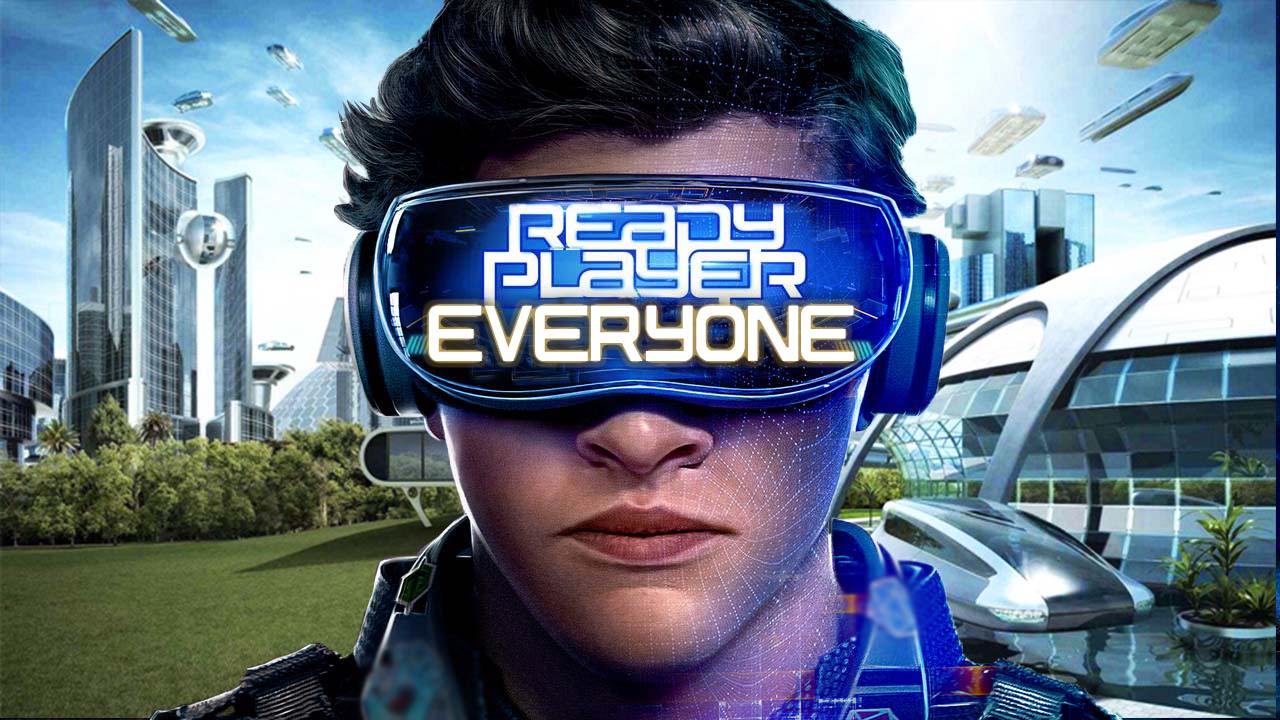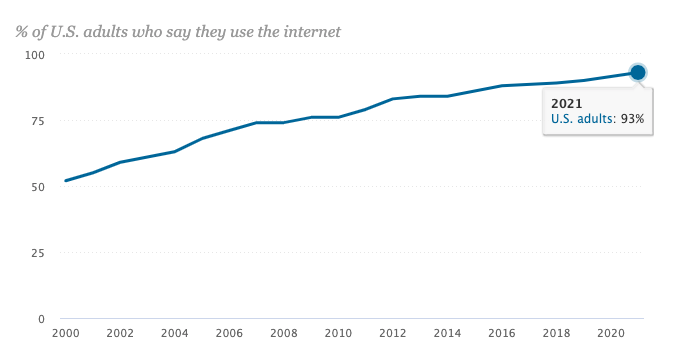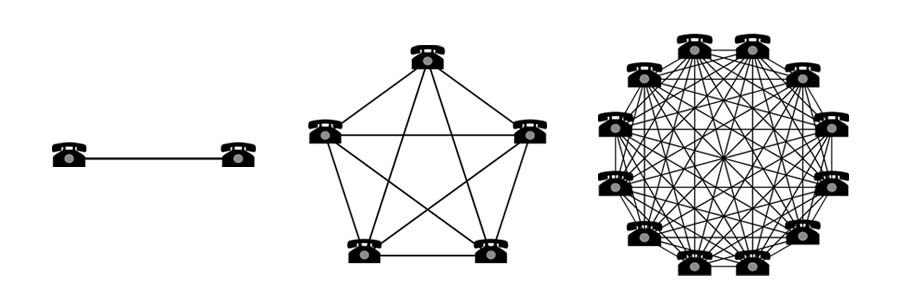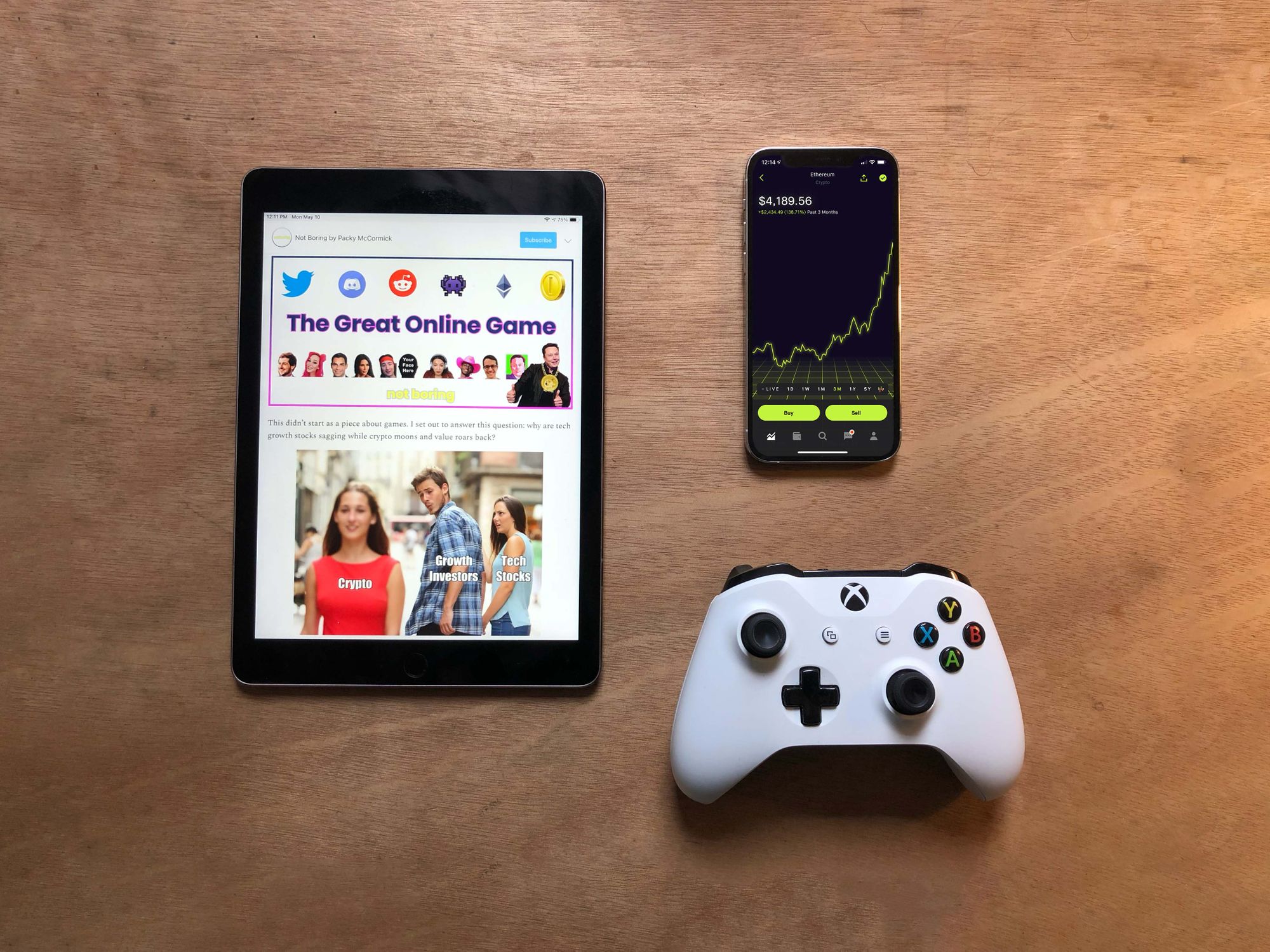When I was a kid, we used to play this weird mental game that was literally called "The Game".
There are only three rules for playing:
- You are always playing The Game
- As soon as you remember you're playing The Game, you lose
- When you lose The Game, you have to announce it (so everyone around you then also loses, and has to announce that they lost, too)
It was a lighthearted, mostly-innocent thing that would start this chain-reaction of mock-disappointment — a playful "How could you!"
I haven't thought about The Game in years — until I read a fascinating article by Packy McCormick called The Great Online Game.
If you're reading this tweet, you're playing the Great Online Game.
— Packy McCormick (@packyM) May 10, 2021
The Game is played concurrently by billions of people, online, as themselves, with real-world consequences.
The downsides are limited; the upside is infinite. https://t.co/QOl5TX6Qus
Technically, I lost The Game after reading this tweet. But I also realized something.
Just like The Game we used to play, everyone is playing the Great Online Game.
Unlike The Game we used to play, The Great Online Game actually has real upsides.
That's good, because The Game we used to play should actually be called The Losing Game. It stops being cute after you realize that it's paradoxically impossible to win. It reinforces one story: you lost.
Look, I have nothing against taking a graceful L here and there, but the only possible outcome of playing "The Game" is an unnecessarily negative interpretation of reality which does you no good. The only ways to win are to forget you're playing or not play at all. Why bother?
A new game
How fitting for generation who grew up in a time where it feels like we're stuck — unable to get a house, unable to get a job, unable to start a family, all because we're constantly losing a seemingly impossible game called late-state capitalism — to embrace a game where the where the only way to "win" is to not play?
We don't play that game anymore.
So when I refer to "The Game" from this point on, I'm referring to sequel; what Packy McCormick calls the Great Online Game.
The Great Online Game is an infinite video game that plays out constantly across the internet. It uses many of the mechanics of a video game, but removes the boundaries. You’re no longer playing as an avatar in Fortnite or Roblox; you’re playing as yourself across Twitter, YouTube, Discords, work, projects, and investments.
This is a new philosophy for play, work, and life. To understand this, let's explore the new rules that apply to the Great Online Game.
- Anyone can play, anyone can win
- More players leads to more opportunity
- The rewards for playing are increasingly tangible
Viewing the internet as a game is a pragmatic and optimistic philosophy which rewards contribution and collaboration far more than it rewards competition.
It's time to play a new game.

1. Anyone can play, anyone can win
When anyone can play, anyone can win.
This is the fundamental appeal to Ready Player One, the best-selling book by Ernest Cline turned blockbuster-film.
The story paints a picture of a bleak, dystopian future that appears ominously familiar. Overpopulation is rampant, infrastructure is decaying, wealth disparity is sky-high, nostalgia-culture is the only culture.
In Ready Player One, reality is all but decaying. In search of respite from an increasingly deserted reality, the majority of civilization has migrated to the virtual reality world where anything is possible: the Ontologically Anthropocentric Sensory Immersive Simulation — better known as the OASIS. For better or worse, everything happens online. Work, play, school, even romance all take place in virtual reality.
The central plot of the book is about a scavenger hunt for an easter egg, a complicated game created by the inventor of the OASIS, James Halliday. Whoever finds this Easter Egg is rewarded with the ultimate prize: inheritance of Halliday's vast fortune and complete administrative control over the OASIS.
The fundamental premise of the book is that anyone who knew enough about Halliday's 1980's obsessions could find the easter egg. Without spoiling anything, it's worth noting the book goes out of its way to drive home the point that theoretically, anyone can win Halliday's Easter Egg Hunt, even a level 1 player.
Despite the dystopia, in Ready Player One, pretty much everyone has access to the basic technology needed to get into the OASIS — just like how pretty much everyone in the United States has access to the internet today.

The big difference
Unlike in Ernest Cline's story, right now is arguably the best time to be alive in the history of humanity. Despite what you may read on Twitter, we do not live in a dystopian world.
In our actual reality, American adults live, on average, an 11.8% longer lifespan today than they did in 1960 — 78 years old in 2018 compared to just 69 years old in 1960.
"The homicide rate in England was 50 times higher in the 14th century than it is today," said Steven Pinker, a cognitive psychologist at Harvard, in a 2018 interview with the New York Times. He continued, emphasis mine:
It’s not just in violence that one sees progress, but in poverty, in illiteracy, in access to small luxuries like beer or televisions. The percentage of the world getting an education, in gender parity in education — girls are going to school all over the world. Even in Afghanistan and Pakistan, the world’s most retrograde countries, the rate of female education has increased.
It was an epiphany from seeing graphs of human improvement that changed my view of the overall course of history: that progress is a demonstrable fact. It’s not a matter of seeing the glass as half full. It’s not a matter of being an optimist.
Even compared to the world ten years ago, today, technology grants us actual superpowers: you can summon a taxi cab to your exact location within ten minutes, instantly broadcast a message to the entire world, search for the answer to nearly any question imaginable.
We complain about screen-time, trolls, and phone addiction, but it's easy to forget that the iPhone 6 had 120,000,000% more computational power than the computers that sent the Apollo missions to the moon. And that phone came out in 2014! The A14 Bionic processor in the iPhone 12 scores 5x higher on Geekbench than the A8 chip in the iPhone 6.
We carry veritable super-computers around in our pockets, yet we use them for menial bullshit. We have access to a virtual Library of Alexandria, but we mindlessly scroll though information feeds designed to consume the entirety of our attention.
These tools are capable of so much more.
We are capable of so much more.
Technology is evolving so fast that our mindsets are still catching up. We have more time, more access, and more opportunity, but are still developing the accompanying perspective. That's where the Great Online Game comes in.
Once you start to view the internet as a game, it's hard to look at it any other way. Playing the Great Online Game is more than just a legitimate way to make money in 2021 and beyond — it can be fun, too.
All you need to play is a computer, tablet, or phone — which you do if you're reading this.
Hey, look, you're already playing!
2. More players lead to more opportunity
Playing the Great Online Game means using technology and the internet for beneficial purposes, sharing information to build businesses, and discovering new ideas in public. The best part is that each individual person gets to decide how they do it and what that looks like.
As access to opportunity continues to increase, viewing the internet as a game makes digital economics less daunting and more approachable. As more people start to play, more opportunities are created for everyone.
Of course, there are caveats. Our world is getting better, but it's not perfect by any means. In a post-pandemic world, playing the game isn't really optional anymore. There's an ever-increasing risk to not playing, says Dror Poleg in a response to Packy's piece:
Everyone must play. We have little to lose because we already lost everything: Stable jobs, affordable homes, education that lasts a lifetime, and worry-free retirement are no longer an option. Even money itself ain’t what it used to be. It loses value by simply sitting in the bank.
This is partly a result of various policy failures. But ultimately, it is due to our current stage of technological development. Information moves around and knowledge becomes obsolete faster than ever. Geographical constraints no longer protect the average from the best.
We are all in one giant global arena.
Cue the Tron: Legacy soundtrack.
Thankfully this arena is nothing like the one in Tron. There's a key difference to the online arenas of the new game: there's no clearly defined villain, in the classical sense. In this game, if you beat someone, then they lose — and that comes with real, negative side-effects for that person.
The old games were about disrupting the incumbents. The new games are about creating value where none existed previously.
Besides, there are too many people out there to bother competing with anyone else. Your only competition is your past self.
"It was a mentality switch in my mind... it was more so like, these dudes are cool. It's a game we're competing at, and it's me versus the game, not me versus the other person. I'm trying to be the best me I can be."
— Kevin Durant speaking with J. Cole about competing and playing in the NBA
True players know that they aren't competing against their contemporaries, they're competing against the game itself.
This is why the most successful players of the game have built their own personal monopolies. "If you're chasing a trend, you've already lost," says David Perell. He continues:
When you build your Personal Monopoly, you say yes to playing a worldwide game that most people don’t even know exists.
Forge a distinct path instead of copying what everybody else is doing. Work on ambitious projects, study the unexplored intersections of ideas and find the questions that people are asking but nobody is answering. There is a vast intellectual frontier waiting for you to find it. As you settle upon these lands, you’ll build your Personal Monopoly.
Playing the game isn't about competition. It's about contribution and collaboration.
Contribution and collaboration, not competition

By focusing on contribution over competition, players of the game can focus on building.
This directly contrasts with the strategies employed by digital media companies, who play the old internet games: an endless, single-minded chase to beat last month's numbers by any means necessary. They constantly compete with each other for the same digital real-estate, senselessly pursue trends arbitrarily set by social networks, and endlessly chase scale, playing zero-sum games instead of creating something new. Not a fun game to play.
In the New Economies of the Great Online Game, venture capital investments aren't necessary, insanely high growth targets don't matter, and licensing IP is an afterthought.
The old games — and the previously effective practices for growth, development, and maintenance — don't really apply to the Great Online Game. There are new strategies and tactics for this game.
Network effects
There's a famous principle in information technology called Metcalfe's Law, which describes how the value of a network changes as more people join the network, named for Robert Metcalfe, the inventor of Ethernet. He noticed that as more devices were added to telephone networks, the number of potential connections between those devices grew at an exponential rate.
Metcalfe's law defines the value of a network as directly proportional to how many connections that network can make. The more devices in a network, the more connections are possible.

This phenomenon is more broadly known as network effects: the more people there are using something, the more desirable that thing becomes. Network effects are applicable to social networks, telephone networks, and even cryptocurrency.
Network effects work in two directions: an appealing way to bring new users onto a platform, and an entrenching mechanism to retain existing ones. It's really hard to stop using iMessage if all of your friends use it.
Of course, the Great Online Game has its own network effects, too.
Once you start developing your online persona, the rewards for playing have never been more real.
3. Increasingly tangible rewards
If we're playing a game, then the goal is to have fun, right?
There's nothing more fun on the internet than crypto. It's nascent, novel, and ripe with potential.
Packy says that cryptocurrency is the "in-game currency" for the great online game. And he actually proved the point right after publishing his article.
Non-Fungible Teamwork
When Packy published his article, he started tweeting out pieces of the article and tagging each of the personalities who he references along the way.
Have often thought about our increasingly digital lives as an “RPG” but haven’t been able to articulate the concept as brilliantly as this. Thanks for sharing your thinking in public @packyM https://t.co/4713lChv8Q
— Bored Elon Musk (@BoredElonMusk) May 10, 2021
He's not just playing the game, he's playing multiplayer.
This kind of community amplification is nothing new ("tweetdecking" has been a thing for years) — but it's genuine.
By referencing and tagging tons of his contemporaries in the post and on Twitter, Packy was able to create an even bigger moment. He involved BoredElonMusk, Web Smith, Blake Robbins, and more, inviting dozens of his peers to join in on the fun, too.
The snowball really picked up speed when Jack Butcher got involved.
"Every tweet is a free lottery ticket." — @packyM pic.twitter.com/jkvd5lCfi3
— Jack Butcher (@jackbutcher) May 10, 2021
Jack has built up an incredible brand called Visualize Value where he distills an idea, quote, or principle down to its essence, and creates a design to visualize it. I've collected a bunch of my favorite designs by Jack in the Public Database, but right now let's talk about the design that Jack quickly made in response to Packy's article.
Jack quoted a line from Packy's article, and within a couple of hours... you know where this is going.
Fuck it. Let's play the Game.
— Packy McCormick (@packyM) May 10, 2021
Every tweet is a lottery ticket.
Not Boring x @jackbutcher
The Great Online Game
NFT Auction. 1 Hour. On @viamirror.https://t.co/Kkl6hCKAqa
Packy and Jack collaborated to sell the article and art as an NFT for for .56 ETH on Mirror — worth about $2k USD at the time of the auction before crypto prices dipped during mid-May 2021. Not bad for an afternoon's work.
Through open and public collaboration, the next generation of artists and creatives are doing more than just building up their own businesses: they're contributing to each other and starting a virtuous cycle that lifts everyone upwards.
Creators and personalities like Packy, Jack, and dozens of others are making real money on the internet — and they're having fun while they do it.
What's next?
Last year, famed venture capitalist Marc Andreessen proclaimed that it's time to build:
Our nation and our civilization were built on production, on building. Our forefathers and foremothers built roads and trains, farms and factories, then the computer, the microchip, the smartphone, and uncounted thousands of other things that we now take for granted, that are all around us, that define our lives and provide for our well-being. There is only one way to honor their legacy and to create the future we want for our own children and grandchildren, and that’s to build.
Marc was talking about building infrastructure, manufacturing, and supply chains for physical products; as the pandemic started, it was clear that the US was lacking in in production.
I want to reframe Marc's idea a bit.
We're living in a time where anyone can create art, anyone can build an online business, anyone can have their own show. All you have to do is decide to play the game.
In reality, there's more than just one game. The Great Online Game is like the metaverse, an all-encompassing idea that traverses physical and virtual spaces to connect us all in a totally new way.
What will you create?
The era of the influencer is over; now, we use the word "creator" to describe people who are building businesses on the internet.
By playing the Game, creators are able to build distribution in the form of an audience on Twitter, YouTube, Instagram, or email mailing lists.
Once a creator has a means for distribution, they can do more than just publish information — they can create entire new businesses.
Packy McCormick, the author of the article that sparked this one, is himself one of these personalities who doesn't fit cleanly into a box. He publishes Not Boring, an email newsletter, yes. But he also hosts an investing syndicate, sells NFTs, and partners with brands to write sponsored articles.
These creators are not the one-trick ponies that influencers were foretold to be — creators are polymathic entrepreneurs who operate diverse businesses across all kinds of industries.
Anyone can play, anyone can win. There's more access to opportunity, and as more players join, you have more chances to collaborate and learn together. The rewards are more tangible than ever.
It all comes down to one, simple question — are you having fun?
Special thanks to Tom for reading an early draft of this piece.
